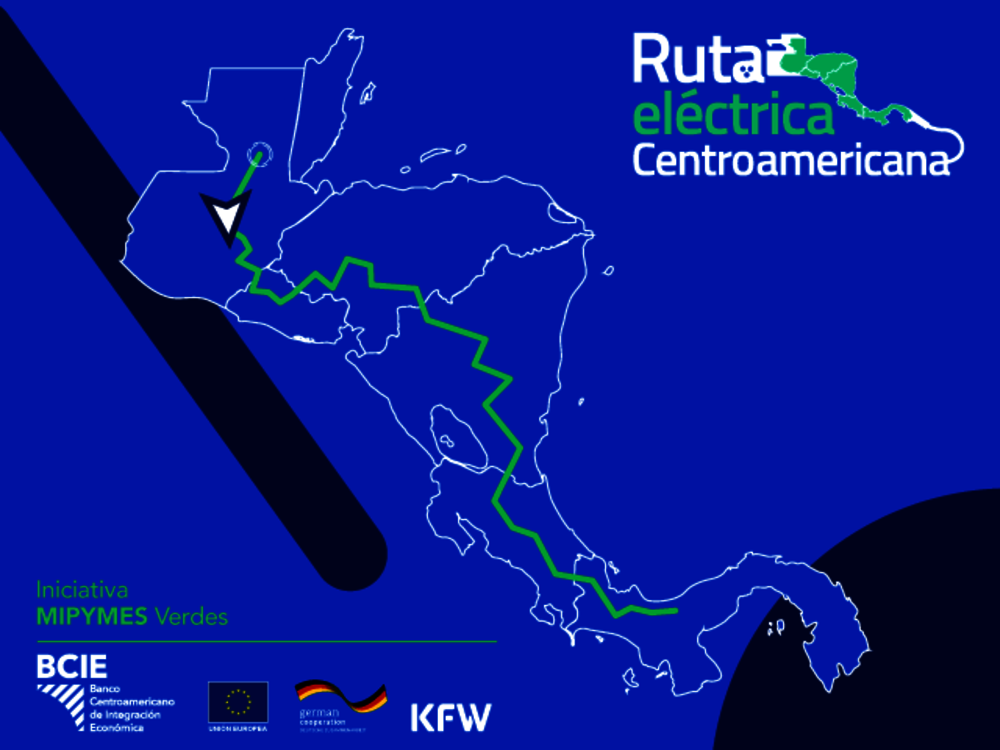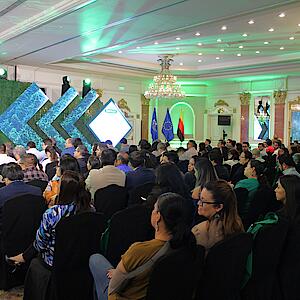To promote sustainable mobility, electric vehicle caravan to cross Central America begins with CABEI's, European Union and KfW of Germany support

• Through the tripartite Green MSMEs initiative is sponsored the "Central American Electric Route" organized by the Costa Rican Electric Mobility Association (ASOMOVE).
Tegucigalpa, November 4th, 2022.- This Friday, at the Plaza de la Constitución in Guatemala, a dozen electric vehicles began a caravan through the Central American region to promote the creation of a network of fast and semi-fast chargers that will connect the six Central American countries, as well as the creation of tax incentives to promote the inclusion of more electric models in the market.
This is the "Central American Electric Route", organized by the Costa Rican Electric Mobility Association (ASOMOVE) with the support of the Central American Bank for Economic Integration (CABEI) through the tripartite Green MSMEs initiative with the Government of Germany through KfW and the European Union through its Latin American Investment Facility (LAIF), through which it is expected to travel about 1,800 kilometers without using fossil fuels.
"Transitioning towards efficient and less polluting transportation models is something that we at CABEI are promoting with special emphasis to achieve cleaner and more orderly cities that improve the quality of life of Central Americans, which is why this activity is of great relevance to raise awareness in each of the countries through which the caravan will travel," said CABEI Executive President, Dr. Dante Mossi.
After Guatemala, the caravan will take place in El Salvador on Saturday, November 4th, in Honduras on Monday, November 7th, with the participation of CABEI Executive President, Dr. Dante Mossi, where the Honduran Strategy for Electric Mobility will be presented; in Nicaragua on Tuesday, November 8th, and in Costa Rica on Wednesday, November 9th, to conclude on Friday, November 11th, in Panama.
Promoting efficient and non-polluting transportation systems is one of CABEI's priority issues, which is why it is working on a Sustainable Urban Mobility Program (PMUS) aimed at identifying and supporting integral sustainable multimodal transportation alternatives, promoting accessibility and safety for people and reducing greenhouse gas emissions in the region.
In this line, it has financially supported two major projects such as the Rapid Passenger Train in the Greater Metropolitan Area of Costa Rica and the construction of the Santo Domingo 2C Metro Line Construction Project in the Dominican Republic, as well as several regional technical cooperation projects such as the establishment of the Railway Technical Standards for Central America and the Harmonization of Railway Projects, the diagnosis and identification of road initiatives for the Climate-Smart Development of RICAM, among others.


![[Translate to English:] [Translate to English:]](/fileadmin/_processed_/e/3/csm_WhatsApp_Image_2024-04-18_at_2.12.23_PM__2__590ef43ade.jpeg)
